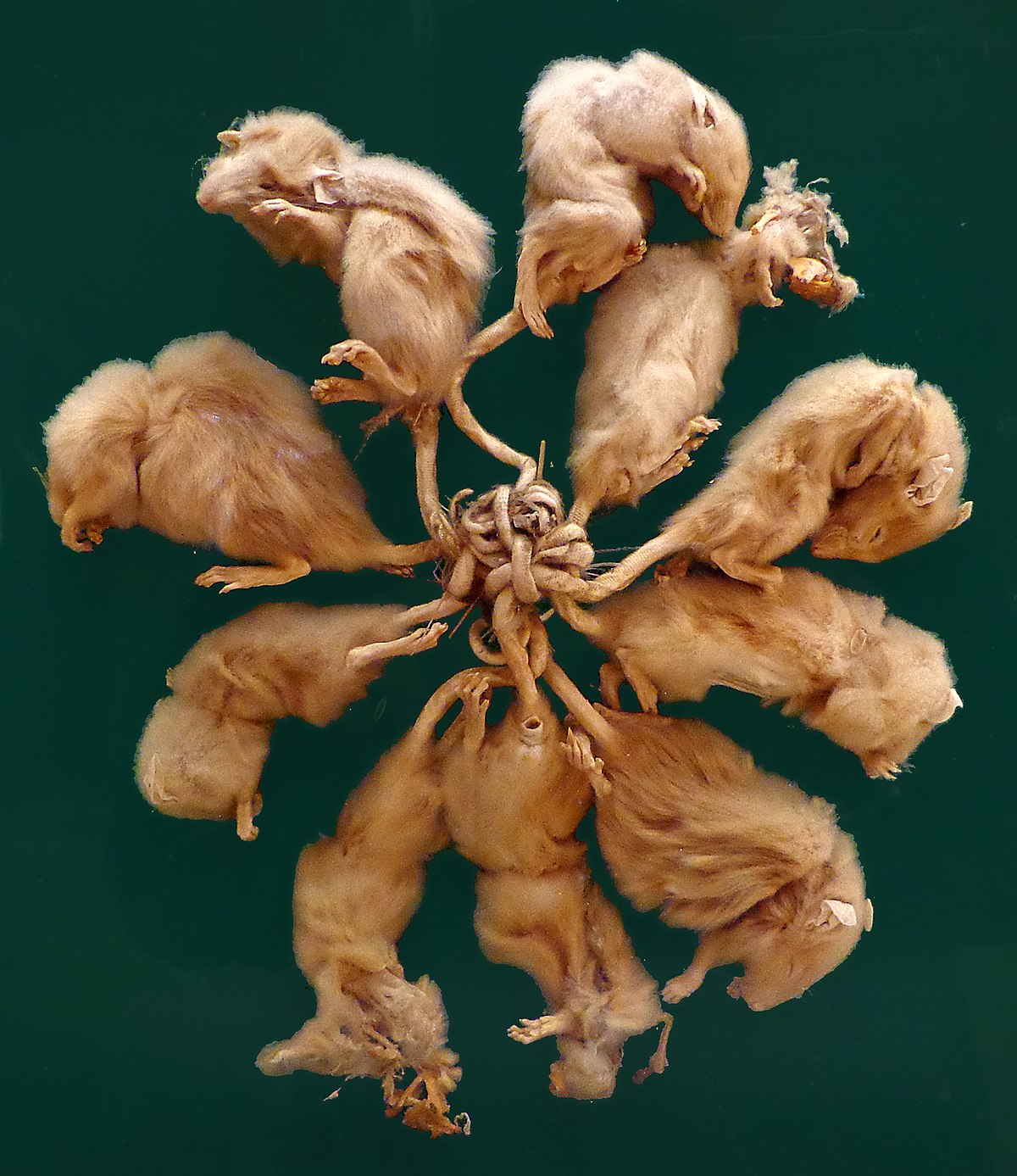27 Facts That You Might Not Know About Rats

Rats, rodents, vermin, or whatever you call these dirty creatures may not be the most beloved animals, but their intelligence and adaptability to their environment make them quite interesting creatures to study.
The Rat's Natural Gifts
1. Rats Are Natural Born Escape Artists
Rats have flexible bodies and lack a rigid collarbone, which allows them to squeeze through openings as small as a quarter.
This incredible trait makes them highly effective at infiltrating homes, buildings, and even food storage areas.
Their ability to navigate tight spaces has made them a persistent pest problem for centuries.
2. Rats Can Chew Through Almost Anything
Rats’ teeth grow continuously throughout their lives, meaning they must constantly gnaw to keep them in check.
This relentless chewing habit enables them to penetrate materials like wood, plastic, concrete, and even softer metals like aluminum.
It’s no wonder they’ve caused significant structural damage in urban environments.
3. Rats Have Unique Whisker Sensitivity
Rats rely on their whiskers to navigate dark and narrow spaces. These sensitive structures detect textures, vibrations, and obstacles, acting like a sixth sense.
This allows them to thrive in environments where vision alone isn’t enough, such as sewers or storage rooms.
4. Rats Can Survive Falls From Great Heights
Thanks to their small size, low body weight, and ability to spread their body upon impact, rats can fall from impressive heights without injury.
This resilience is another reason they’re able to thrive in urban areas, scaling buildings and leaping across gaps with minimal risk.
5. Rats Can Outrun You For a Moment
Rats can reach speeds of up to 8 mph in the form of short bursts. While they’re no match for humans in long distances, their agility and quickness make them incredibly effective at escaping predators.
6. Rats Are Great Swimmers
Did you know that rats can tread water for up to three days and hold their breath for several minutes? This came as a surprise to me, but I thought about it, and maybe I shouldn't have; rats have been known to roam in sewers after all, it would only make sense that they are at least competent swimmers.
7. Rats Are Excellent Climbers
In addition to swimming, rats are skilled climbers. They can scale walls, pipes, and trees to access food or shelter.
Which makes them annoying to deal with as pests; they somehow, someway, retreat to inaccessible places.
8. Rats Are Prolific Breeders
A single pair of rats can produce hundreds of offspring in just one year. This rapid reproduction rate explains why infestations can spiral out of control so quickly.
Behavior of Rats
9. Rats Can Laugh
You might have already known this or at least have heard about it, but yeah, rats are capable of laughter.
When tickled or playing, they emit high-frequency giggles inaudible to humans without special equipment.
10. Rats Will Eat Other Rats
Here's something that you might not know about rats, did you know that when food is scarce, rats can turn to cannibalism for survival? Welp, sorry to tell you but it's true.
Also, an increase in rat cannibalism was increased during the Covid-19 lockdowns. Source
11. Rats Communicate Using Ultrasound
High-frequency sounds beyond human hearing are a key part of how rats communicate.
These ultrasonic vocalizations occur during social interactions, mating, and distress. Studying their "secret language" has provided insight into their social complexity.
12. Rats Are Social Creatures
Rats form close bonds with their companions and display empathy. They’ll forgo a food reward to help a trapped friend, showcasing their social and cooperative nature. Source
This trait makes them more complex than many people give them credit for.
13. Rats Are Surprisingly Clean
Oh, by the way, you might find this suprisingl (I did too) but apparently, rats are meticulous groomers! Contrary to their dirty reputation, rats are meticulous groomers, spending hours each day cleaning themselves and even their companions.
The Rat's Suprising Strengths
14. Rats Are Hard to Outwit
Rats’ intelligence allows them to recognize patterns, avoid traps, and quickly adapt to changes in their environment.
Short video of a rat disarming a rat trap using a stick
This explains the videos in the internet where rats are able to disarm traps once they figure out how it works, this makes them one of the most challenging pests to control.
15. Rats Have Amazing Memories
Once a rat learns a route or how to avoid a danger, it rarely forgets. This memory aids their survival and further complicates pest control efforts.
16. Rats Are Resilient to Poisons
Over generations, some rat populations have developed resistance to common poisons. This evolutionary adaptation is quite annoying to deal with if you have rats as pests and not pets.
17. Rats Adapt Quickly to Change
Rats thrive in rapidly changing environments, effortlessly adapting to new challenges, diets, and habitats, which is pretty amazing when you think about it.
Makes you wonder how their ability to adapt to a new environment stacks up against ours, doesn’t it?
History of Rats
18. Rats Have Been a Problem for Centuries
Rats have shaped human history, from infesting grain stores in ancient times to playing a notorious role in spreading the Black Death.
Their impact on public health and agriculture continues to this day, making them a pest of historical significance.
19. Rats Have Been to Space
Rats were among the first animals sent into space, contributing valuable data about the effects of microgravity on physiology. Source
20. Rats Are Heroes in Mine Detection
Specially trained rats are used in some countries to detect landmines. Their keen sense of smell, intelligence, and small size make them perfect for this lifesaving task. Source
21. Rats Can Detect Tuberculosis
Beyond landmines, rats are trained to detect tuberculosis in humans. Their abilities continue to save lives. Source
22. Rats Are Everywhere
Originating in northern China, brown rats (Rattus norvegicus) have spread across the globe, adapting to urban and rural environments alike. Their global journey mirrors human migration, cementing their status as one of the world’s most adaptable species.
Another rat species called Rattus rattus, or the black rat, originated in South Asia and has also made its way across the globe. While both species have adapted to human environments, they have distinct migration patterns and histories.
How Rat's Affect The World
23. Rats and the Economy
Rats cause billions of dollars in economic damage annually by spoiling food supplies and damaging infrastructure. Despite their resilience, human efforts to limit their impact remain a constant battle.
24. Rats Have a Unique Role in Science
Rats have contributed to breakthroughs in medical and psychological research, from insulin development to behavioral studies. Without them, many of these advances might not exist.
25. Rats Were Worshiped in Some Cultures
In India, rats are revered in temples as manifestations of deities. At the Karni Mata Temple, thousands of rats are cared for and protected, showcasing their cultural significance. Source
26. Rats Have Cultural Significance Around the World
Rats appear in folklore and myths worldwide, symbolizing everything from greed to survival. That's pretty cool.
Additional Facts
27. Rat King
There's a term called "rat king", you might be thinking that it refers to a father rat or a rat that is the leader of a community of rats (that's what I thought at first too), but no.
APPARENTLY, a "rat king" refers to multiple rats that are bound together by their tails.
The original term of it was in german which is "Rattenkönig". The direct translation of it in english is "Rat king". I have no idea why the Germans called the phenomenon "rat king".

For more information, visit the wikipedia page for it.
Copyright ©2025 by Marshall Vulta





Comments ()